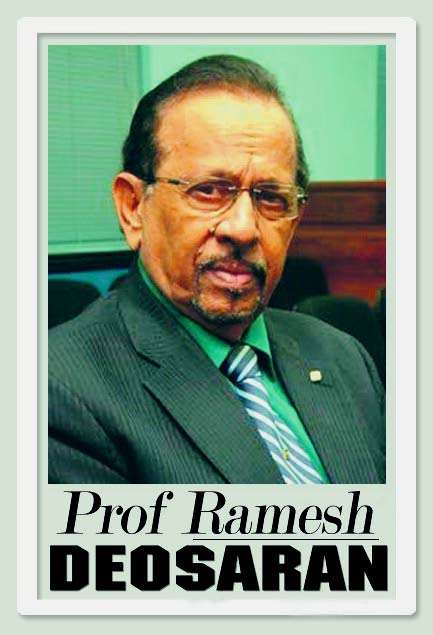Democracy for US and us

Democracy. This word is cryptically defined as “a system of government by the whole population, usually through elected representatives.”
By its very nature, democracy inevitably attracts divisiveness. The competition for power and resources helps stimulate reciprocal mistrust and self-serving postures, phenomena which have troubled many political philosophers in pursuit of “good government.”
The US Senate impeachment trial of President Donald Trump helps demonstrate what its divisive, decentralised democracy is all about and how we compare. This impeachment process, well publicised internationally, provides political education to the population.
The recent speech by President Paula-Mae Weekes, given its “state of the nation” assessment, should have been followed by several days of prime-time discussions.
The US constitution allows political diversity and provides transparent structures for such diversity, energised by a robust, sophisticated media.
Four issues arise from this impeachment trial which should help inspire us to rethink our long-standing need for decentralised democracy and fuller public accountability.
1. To process to remove a US president as chief executive requires a “high bar,” involving the two levels of US Congress (100 senators, 435 members of House of Representatives.) The House of Representatives is constitutionally empowered to impeach, while the Senate (presided by Chief Justice) is empowered to hold trial and determine a verdict (a two-thirds majority required).
Former US president Clinton, a Democrat, was impeached by the Republican-majority House of Representatives for lying and abuse of power, but acquitted by the Democrat-majority Senate in 1999.
The US Constitution states: “The President, Vice President and all civil officers of the US shall be removed from office on impeachment for, and conviction of, treason, bribery, or other high crimes and misdemeanours.”
Our chief executive, the Prime Minister, can be removed by a Westminster-type vote of no confidence in our House of Representatives. The reasons may not necessarily be legally defined.
2. Separation of powers in the US government is structurally and operationally quite discreet, with shared powers. The president, for example, retains a veto over legislation, subject to Congress override (a two-thirds vote). He can appoint his cabinet from people outside Congress.
Congress, as the legislature, has powers, for example, over taxation and the budget.
With majority government, our Parliament suffers confusing duplication, with the country’s cabinet and its chief executive (the PM) having almost absolute control over the elected Parliament (except for special majority laws).
In this way, an elected Parliament becomes a rubber stamp of cabinet, which in itself may contain several non-elected ministers. This weakens public accountability and the purpose of democracy itself, especially when ministers are allowed to answer parliamentary questions in any way or form they prefer.
3. The powers of the population – that is, where the power of democracy resides – is quite forceful in the US. All members of Congress, including senators, are elected and directly accountable to their respective constituencies, be they farmers, manufacturers, black minority or religious groups, etc.
Our senators are not elected, and therefore, not accountable to the population.
We recall democracy being “a system of government by the whole population, usually through elected representatives.” While party membership does play a part, personal reputation and character play significant part in being elected from state to state in the US.
In our country, party membership plays a stronger part in being elected, to the point where some boast that even “a crapaud” will win in certain constituencies.
4. Public officials appearing before US congressional committees give evidence under oath so they can be held accountable. Further, these committees have firm rules for both members and officials, for example, speaking time limits.
Our joint select committee system is relatively permissive, with extensive repetitions, and committees chaired more often than not by ministers or members of government. Such a system implicitly extends the powers of cabinet and again subverts the presumed powers of an elected parliament. Separation of powers suffers. Such centralised democracy facilitates autocratic bureaucracy, political victimisation, excessive patronage and lawlessness.
A democracy, though divisive, also means a fair and equitable distribution of powers within the separation of powers, especially between the executive and an elected parliament. If not, separation of powers becomes more of an illusion than a reality.
Pity we don’t debate such matters.


Comments
"Democracy for US and us"